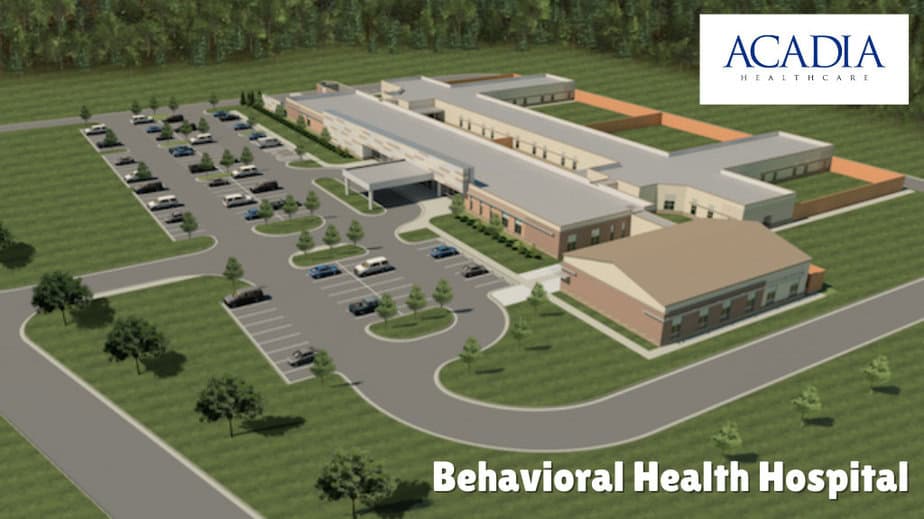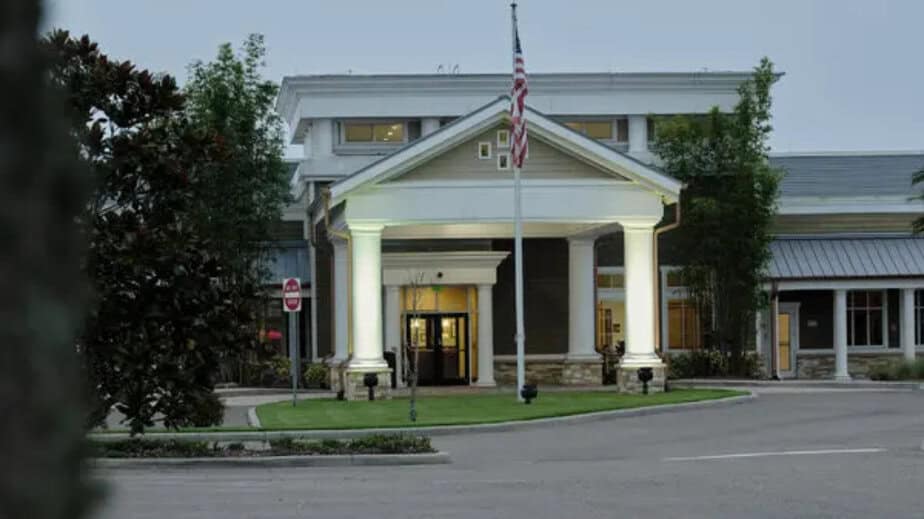First responders — including military veterans, active-duty service members, firefighters, police officers, and emergency medical personnel — face unique mental health challenges directly related to their service. Their repeated exposure to traumatic events can lead to conditions like post-traumatic stress disorder, substance use disorders, and depression that require specialized treatment approaches.
According to the Substance Abuse and Mental Health Services Administration, 30% of first responders develop behavioral health conditions, including, but not limited to, depression and posttraumatic stress disorder, compared to 20% in the general population.
Acadia Healthcare’s network of affiliates has developed targeted programs for this population, recognizing that their experiences and treatment needs often differ from those of the general public. These specialized services help address both the characteristic mental health challenges faced by first responders and the cultural barriers that frequently prevent them from seeking help.
The Red, White, and Blue Program
Among Acadia Healthcare’s network of specialized services is the Red, White and Blue program at the Sierra Tucson facility. The program is designed specifically for service members, veterans, and first responders. It has received national recognition from the Veterans Administration and first responder organizations.
Program director Bill Reynolds, a 30-year Navy veteran, developed the program with a deep understanding of the unique needs of this population. Under his leadership, the program has incorporated elements that help address both service-related trauma and preexisting conditions that veterans may have brought into their military experience.
The program employs specially trained staff who understand the distinct culture and experiences of first responders. This cultural competence can be critical for building trust with individuals who may be reluctant to seek help due to concerns about stigma or career impacts. As Reynolds has noted, first responders often face unique barriers to seeking mental healthcare because of professional cultures that have traditionally viewed psychological struggles as signs of weakness rather than normal responses to abnormal situations.
The Red, White, and Blue program incorporates several elements specifically designed to address the needs of first responders. One notable feature is a daily flag ceremony where participants gather to share what they’re grateful for — an activity that Reynolds personally leads even on his days off. The ritual can help build camaraderie among participants while reinforcing positive psychological practices.
Treatment at the program incorporates evidence-based practices specifically adapted for trauma-related conditions common among first responders. These can include specialized interventions like stellate ganglion block injections for severe PTSD and transcranial magnetic stimulation for treatment-resistant depression. Reynolds advocates for making these advanced treatments available to program participants who haven’t responded to conventional therapies, highlighting his commitment to exploring all options for recovery.
One case Acadia Healthcare highlighted involved a Vietnam War veteran with complex needs, including frequent psychogenic nonepileptic seizures, who had not responded to previous treatment attempts. After three months in the Red, White, and Blue program, the veteran made significant progress and now speaks as an alumnus to current program participants. This approach to continued connection with program graduates can create a community of support that extends beyond the formal treatment period.

Addressing Stigma and Other Barriers to Care
First responders also face specific barriers to care that specialized programs must address. According to a study published by the American Psychological Association, stigma remains a significant obstacle, with more than 60% of individuals citing shame as a primary barrier to seeking behavioral health treatment. For first responders, these barriers may be heightened by workplace cultures that could view psychological struggles as professional weaknesses rather than normal responses to extraordinary circumstances.
The approach to serving first responders at Acadia Healthcare’s network of affiliates includes addressing this stigma through education and advocacy. Bill Reynolds has spoken at public events and appeared on Arizona public radio and television to discuss the importance of mental healthcare for service members, veterans, and first responders. This outreach work helps normalize conversations about mental health within first responder communities and encourages those struggling to seek appropriate help.
Another key aspect of first responder programs is the coordination with external support systems. The specialized staff often work closely with employers, families, and community support networks to help ensure a comprehensive approach to recovery. This collaboration helps address practical concerns about job security and professional standing that might otherwise prevent first responders from engaging fully in treatment. By partnering with police departments, fire services, emergency medical organizations, and veteran support groups, Acadia’s network of affiliated facilities aims to create more seamless pathways to care.
Levels of Care
The continuum of care for first responders at Acadia Healthcare’s affiliated network of facilities includes multiple levels of treatment to meet varying needs. Acute inpatient care provides intensive support for those in crisis, while residential treatment offers a structured therapeutic environment for those requiring extended support. For individuals transitioning back to work or community life, partial hospitalization programs and intensive outpatient services provide ongoing treatment while allowing for greater independence.
Digital health tools have become increasingly important components of first responder treatment programs. Telehealth services can help overcome geographical barriers to specialized care. These technological approaches are particularly valuable for first responders who may have irregular work schedules or be stationed in remote locations with limited access to specialized behavioral health services.
Acadia’s network has also incorporated educational initiatives into its first responder programs, recognizing that prevention and early intervention are crucial. These initiatives include training for first responder organizations on identifying early warning signs of mental health issues, implementing stress management techniques, and creating supportive workplace cultures. By addressing organizational factors that contribute to mental health challenges, these educational programs help create environments more conducive to psychological well-being.
Read next: 10 Ways to Improve the Healthcare Quality in Hospitals
